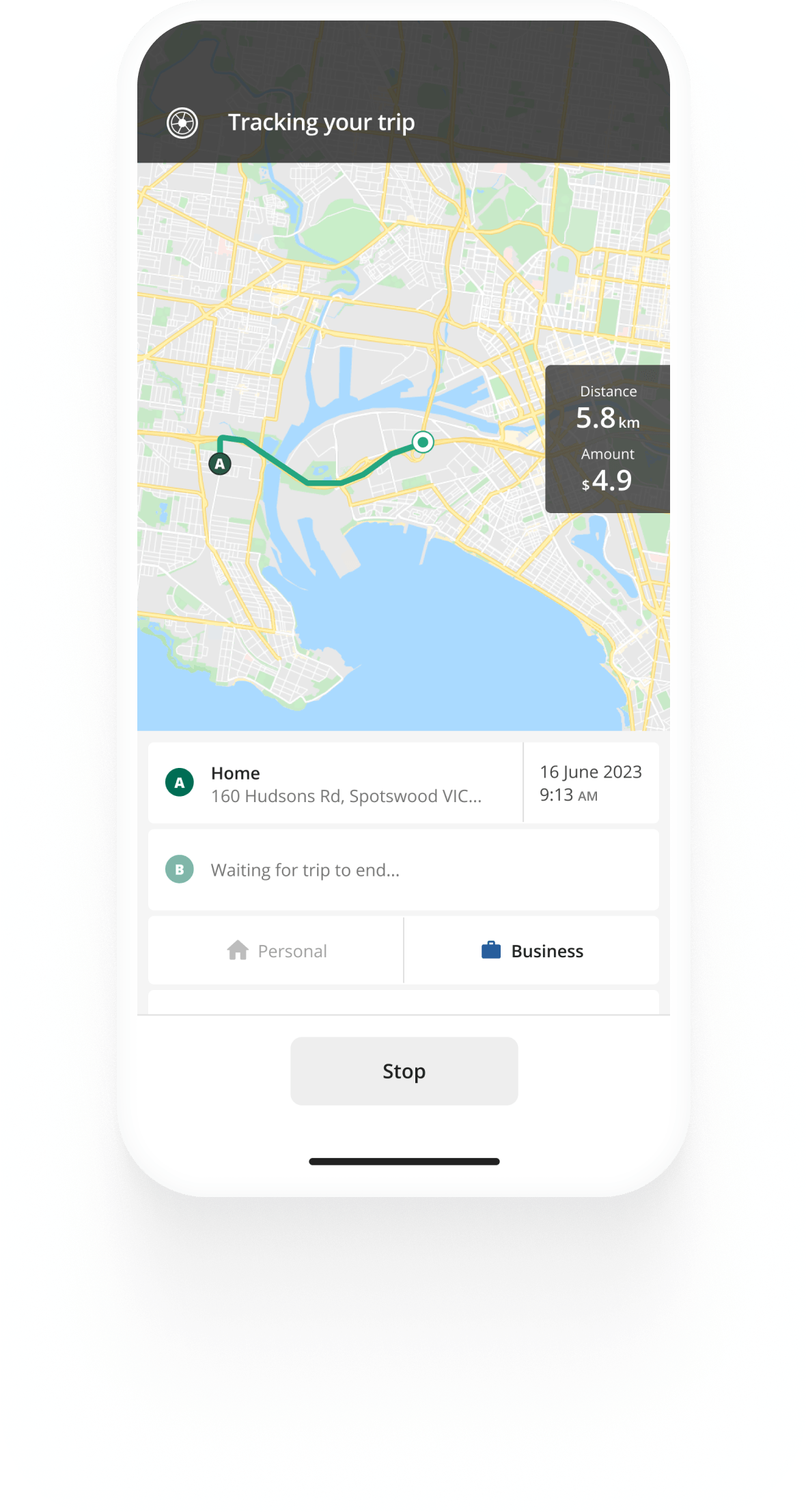Track mileage automatically
Get startedWhat Is a Company Car?
A company car is a vehicle that is owned by a business rather than an individual. Company vehicles can be anything from a small, fuel-efficient car, a luxury vehicle or a van or commercial vehicle. As such, the costs incurred in running the car are borne by the business.
How to utilise company cars in a small business
Company cars may be available for use by any employee who needs to travel for work purposes, such as visiting a client site or going to a conference, or they may be set aside for the exclusive use of a particular employee for both business and personal usage.
Only the business component of company car usage may be claimed as a tax deduction, which is why it is very important to maintain a log book to track any personal usage, which also attracts Fringe Benefits Tax (FBT).
FBT is taxed at a high rate (47%), so a company car designated for a particular employee’s personal as well as business usage is a considerable expense to the business.


Kilometre tracking made easy
Trusted by millions of drivers
Automate your logbook Automate your logbook

Automatic mileage tracking and ATO-compliant reporting.
Get started for free Get started for freeMaking use of deductions for company cars
Any business-related running costs incurred with owning and using company cars may be claimed as a tax deduction. These include expenses such as insurance, registration, fuel and maintenance as well as depreciation.
There is a cap on the maximum amount that can be claimed on the purchase price and depreciation of company cars, called the car limit. You can read more about the car limit from the ATO.
Company vehicles reimbursements
The ATO requires detailed records to be kept to be able to identify business and personal usage of company cars as on the business portion of a company vehicle’s usage may be claimed as a tax deduction. While it is commonly believed that you do not need to maintain a log book for commercial vehicles, this is not the case, and you will need to be able to provide it if requested by the ATO to validate business usage.
Driversnote for Teams is a simple and effective way for employees to use their mobile phones to keep track of their trips automatically. Managers can then review and approve or reject these for reimbursement or as business-related usage.
FAQ

Tired of logging mileage by hand?
Effortless. ATO-compliant. Liberating.
Related posts
ATO Mileage Guide
25 June 2024 - 5 min read
Learn about the rules of reimbursing employees for their car expenses or deducting expenses as an employee or self-employed individual.
Hiring Employees as a Sole Trader
15 April 2025 - 5 min read
How to hire employees as a sole trader in Australia and the main obligations and considerations in doing so.
How to Write Off a Car for Business in Australia
15 April 2025 - 2 min read
Don't miss out on writing off a car for business - it may be the largest deduction you can claim as a business owner. See the 2024/25 ATO rules.

.svg)
.svg)